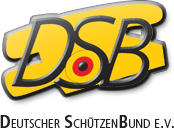Effects of neurofeedback training on frontal midline theta power, shooting performance and attentional focus with experienced biathletes
(Auswirkungen des Neurofeedback-Trainings auf die Theta-Power der vorderen Mittellinie, die Schießleistung und den Aufmerksamkeitsfokus bei erfahrenen Biathleten)
INTRODUCTION: Frontal midline theta power (FMT) has previously been associated with superior rifle shooting performance 1, which is crucial for successful biathlon performance 2,3. The purpose of the present study was to identify whether neurofeedback training using electroencephalography (EEG) would lead to increased FMT and improved rifle shooting performance and attentional focus in biathletes.
METHODS: Twenty-eight female and male biathletes (age: 21.7 ± 2.3 y) competing at national/international levels were pair-matched based on their best shooting test scores and were assigned to either a control group (CON: regular training only) or an intervention group (NFT: regular training plus 6 x 30-min sessions of neurofeedback training). The training intervention consisted of 6 sessions of 10 x 3-min blocks of neurofeedback training using EEG, which aimed to increase the participants` FMT whilst dry-firing their rifle in a seated position. Pre- and post-tests included assessment of precision shooting and simulated biathlon performance.
RESULTS: FMT increased from baseline during the neurofeedback training sessions (p = 0.05). However, there were no differences in pre- to post-test changes in FMT or shooting performance between the two groups (CON vs. NFT, p > 0.05). There was a small group (CON, NFT) x test (PRE, POST) interaction effect for attentional focus (p = 0.07; ? p2 = 0.12), indicating a potential benefit of neurofeedback training. Analyses of inter-individual differences indicated that superior shooters were more proficient at increasing FMT during neurofeedback training, but this did not translate to greater improvements in post-test shooting performance.
DISCUSSION: Our findings show that the prescribed neurofeedback training was sufficient to allow biathletes to increase FMT while dry-firing their rifle. However, the training intervention was ineffective in elevating FMT or improving rifle shooting performance during live-fire shooting tests, possibly due to participants developing varied, irrelevant or ineffective strategies to shape their FMT. Participants who were most responsive to the neurofeedback intervention tended to be most proficient during sport-specific shooting tests. This suggests that more skilled performers may be more receptive to neurofeedback training, although this requires further investigation.
© Copyright 2023 9th International Congress on Science and Skiing, March 18 - 22, 2023, Saalbach-Hinterglemm, Austria. Veröffentlicht von University of Salzburg. Alle Rechte vorbehalten.
| Schlagworte: | Biathlon Schießen Leistung Konzentration EEG Training Gehirn Trainingsmittel |
|---|---|
| Notationen: | technische Sportarten Biowissenschaften und Sportmedizin |
| Tagging: | Neurofeedback Aufmerksamkeit |
| Veröffentlicht in: | 9th International Congress on Science and Skiing, March 18 - 22, 2023, Saalbach-Hinterglemm, Austria |
| Herausgeber: | T. Stöggl, H.-P. Wiesinger, J. Dirnberger |
| Veröffentlicht: |
Salzburg
University of Salzburg
2023
|
| Seiten: | 45-46 |
| Dokumentenarten: | Kongressband, Tagungsbericht Artikel |
| Sprache: | Englisch |
| Level: | hoch |
